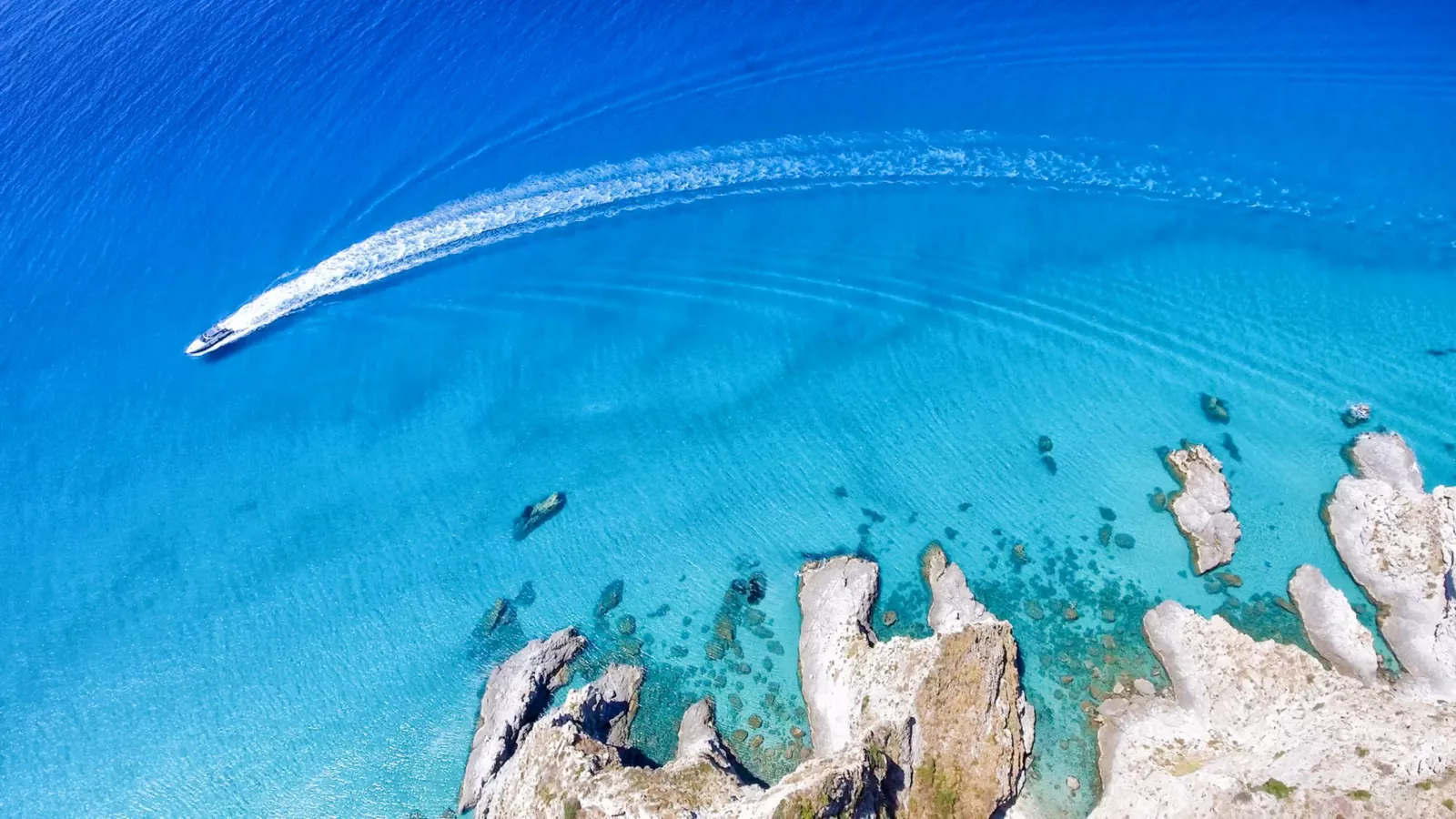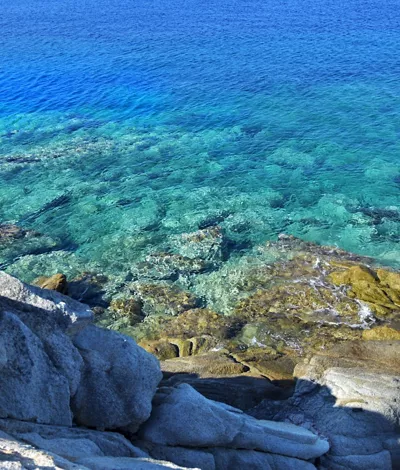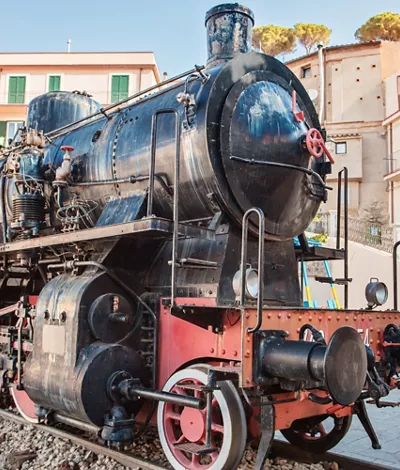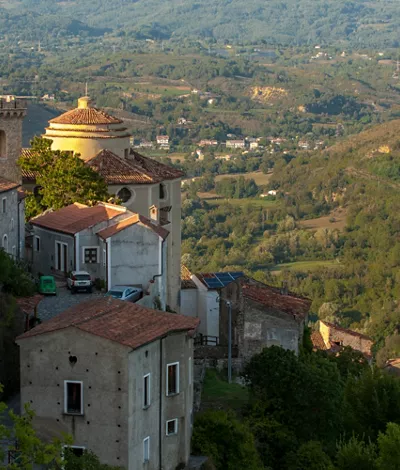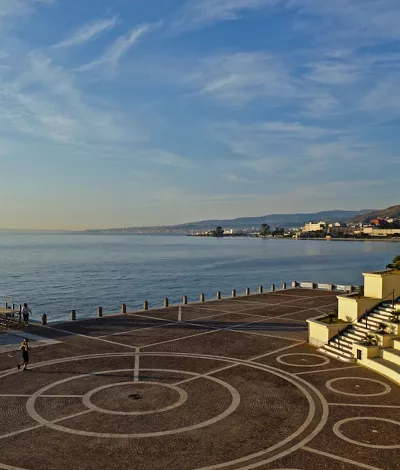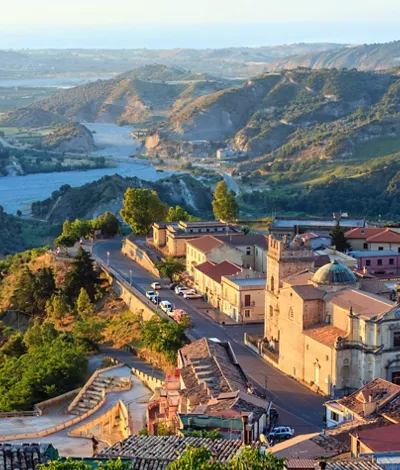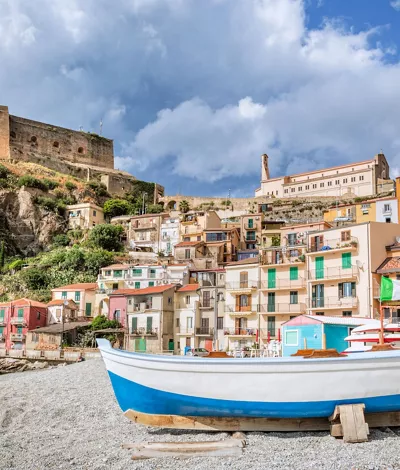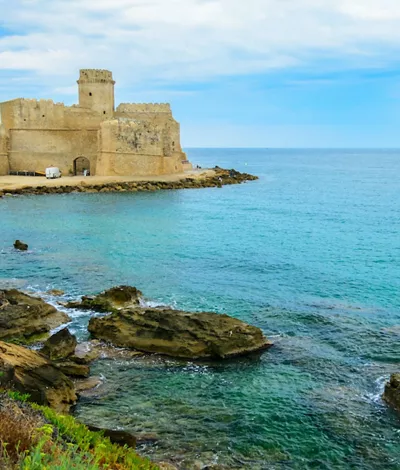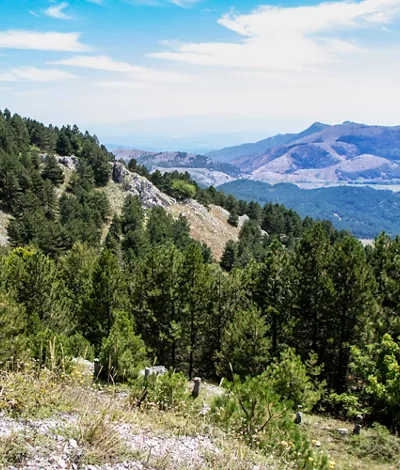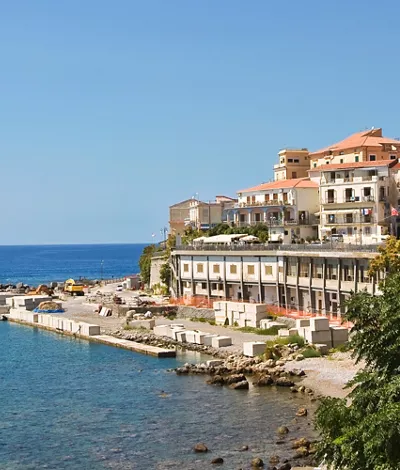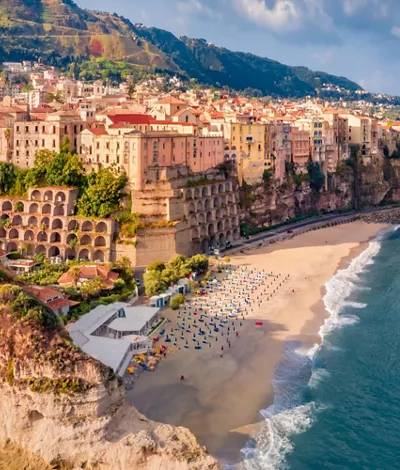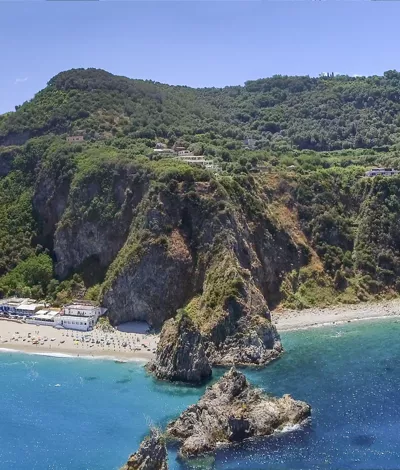Calabria is the region of crystal-clear sea, the Riace Bronzes, Reggio Calabria and Capo Vaticano, a captivating mix of history and beauty
Calabria, also known as the tip of the Italian boot, is a region in Southern Italy characterised by the incredible diversity of its landscapes, with the proximity of mountains to a splendid sea that attracts tourists from all over the world.
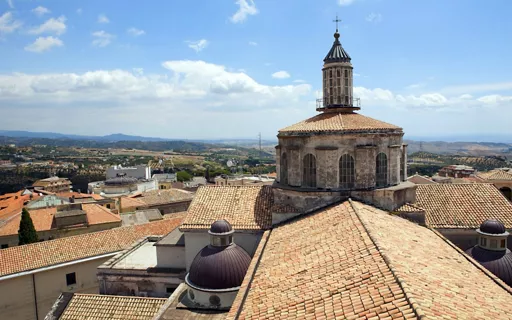
Catanzaro
A territory to explore, among the sea, beaches and the Sila plateau The province of Catanzaro, washed by the Ionian Sea on one side and the Tyrrhenian Sea on the other, welcome visitors all year round. In spring and summer, the Ionian coast is popular among tourists looking for sea and warm weather. In winter, the Sila plateau becomes a renowned ski resort with pistes of varying difficulty, ski lifts and superb classes for anyone learning to take their first steps on the snow. The city of Catanzaro is full of sites of interest, from monuments like the Cathedral, the Church of Santa Teresa and the Torre Normanna castle to places where you can relax, including the gardens of Villa Trieste and Belvedere, with unique views of the Fiumarella Valley and the Gulf of Squillace. In the southern part of the bay is Soverato with its white sandy beaches and shallow waters, which make it one of the most famous Calabrian seaside resorts. If you want to travel back in time, don’t miss the Scolacium Archaeological Park, home to the remains of the pre-Roman settlement of Skylletion. On the slopes of the Sila mountains lies the small village of Belcastro, built on an outcrop at the foot of the castle once owned by the Counts of Aquino. Though it is now in ruins, it is well worth visiting while exploring the area and sampling local delicacies.
Discover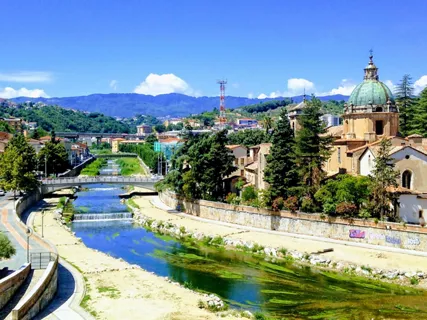
Cosenza
The pearl of Calabria: history, culture and natural wonders Bathed on one side by the Tyrrhenian Sea and on the other by the Ionian Sea, the province of Cosenza is home to Calabria’s main scientific and cultural hubs. This is thanks to its rich history that began back in the Palaeolithic Period with the first human settlements, traces of which remain today, for example at the Grotta del Romito archaeological site in Papasidero in the Pollino National Park, where you can go rafting in the Lao River gorges. History and culture in Cosenza are inseparable from the wonders of its two coastlines. After exploring the monuments, stately homes and churches of Cosenza’s historic centre, you can head for the sea and enjoy hours of relaxation. The most popular destinations on the Tyrrhenian side include the beach of Praia a Mare and that of Tortora Marina. If you want to swim in the Ionian Sea you can choose between the beach of Roseto Capo Spulico, towered over by the Federiciano Castle, that of Rocca Imperiale Marina and the beach that reaches from Amendolara Marina to Trebisacce. Be sure to visit Amantea to admire the medieval castle ruins and the San Bernardino da Siena monastery.
Discover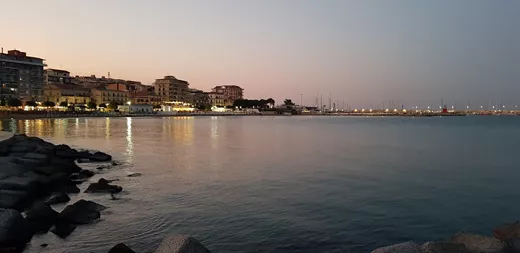
Crotone
In the heart of Magna Graecia Unspoilt nature, thousands of years of history, culture and tradition create the perfect combination in Crotone. An ancient Greek colony from the 8th century BC, it is nicknamed the city of Pythagoras because it was here that the philosopher founded the school named after him. The old town unfolds in a maze of narrow alleyways and small squares up to the Cathedral of Santa Maria Assunta. Don’t miss the Capo Colonna archaeological site, which houses what remains of the ancient sanctuary of Hera Lacinia. Among the most beautiful villages in the province of Crotone is Santa Severina, perched on a cliff that ends with the Norman Castle, which offers breath-taking views. Near the capital, bathed by the waters of the Ionian Sea, lies the Marine Protected Area Capo Rizzuto, among Italy’s largest protected natural areas. Famous for its red-sand beaches and flourishing vegetation, the reserve is home to the charming town of Le Castella, where you can visit Aragonese Castle. If you love being in contact with nature, we recommend visiting the Vergari River Park in the municipality of Mesoraca, renowned for its trekking paths through pristine landscapes, waterfalls and water basins to explore. It is an ideal location to escape from the summer heat.
Discover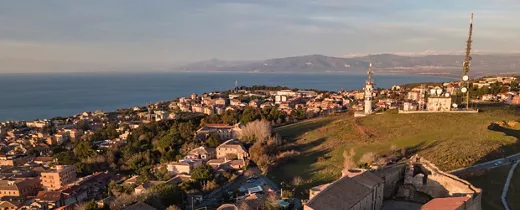
Vibo Valentia
From Serre to the Costa degli Dei The province of Vibo-Valentia in Calabria stretches from the Serre mountains to the Costa degli Dei on the Tyrrhenian Sea. It is home to Calabria’s best-loved tourist resorts, including Pizzo, Capo Vaticano and Tropea. The city of Vibo retains its medieval layout, dominated by the Norman-Swabian castle, home to the Archaeological Museum. Check out the Belvedere Grande, for breath-taking panoramic views from Cape Palinuro to Messina. Don’t miss the town of Pizzo, perched atop a cliff, the church of Piedigrotta carved into the tuff, and the archaeological excavations of Briatico, famous for its crystal-clear waters. Tropea rises above the sea on a rock that looms over the beach. At the top of the rock is the Sanctuary of Santa Maria dell’Isola. The queen of the Costa degli Dei, you can enjoy water sports like snorkelling, canoeing, windsurfing and kitesurfing. For walks through nature, follow the Sentieri di Monaci trail, along which you will come across hermit caves. Inland, we recommend visiting the city of Mileto, the Norman capital, and the Carthusian monastery of Serra San Bruno, founded in 1100. For the most beautiful sunsets, head to Monte Poro, where the sun sets over the sea with the Aeolian Islands in the background.
Discover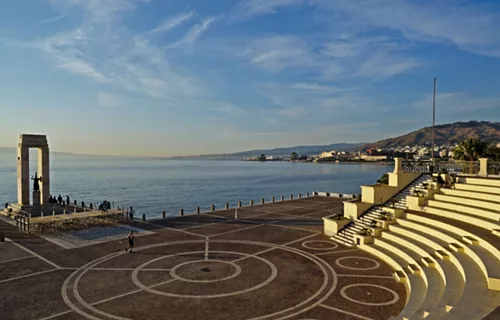
Reggio Calabria
Located at the tip of the “boot” in Italy, Reggio Calabria is a welcoming and ever-changing city Overlooking the sea and rich in history and culture, Reggio Calabria is a surprising and dynamic city. Its Mediterranean climate and thousand-year history make it the most suitable place for those seeking relaxation, good food and a dive into the past.
Discover

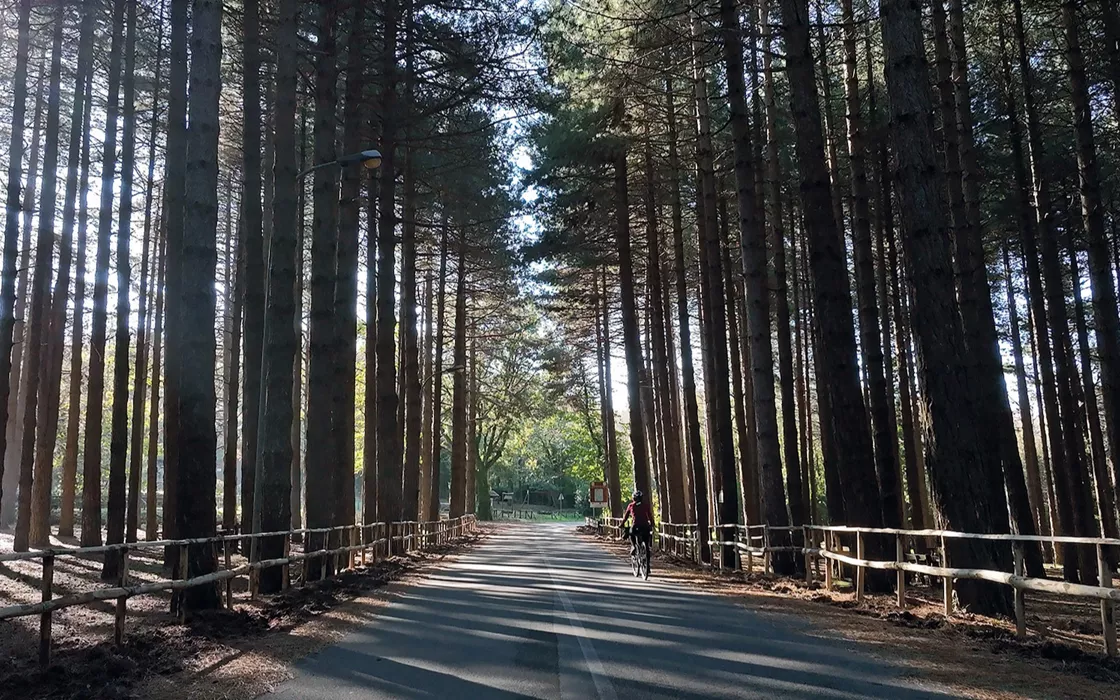
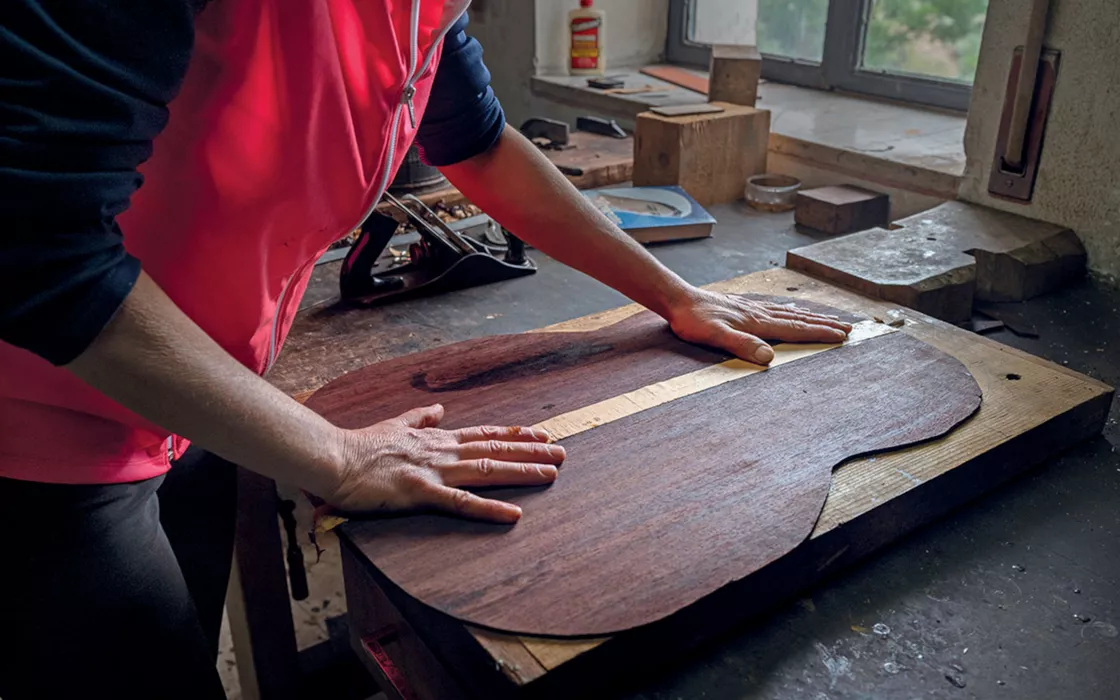
From Orsomarso to the fertile Esaro Valley: between wine cellars and craft shops
Learn more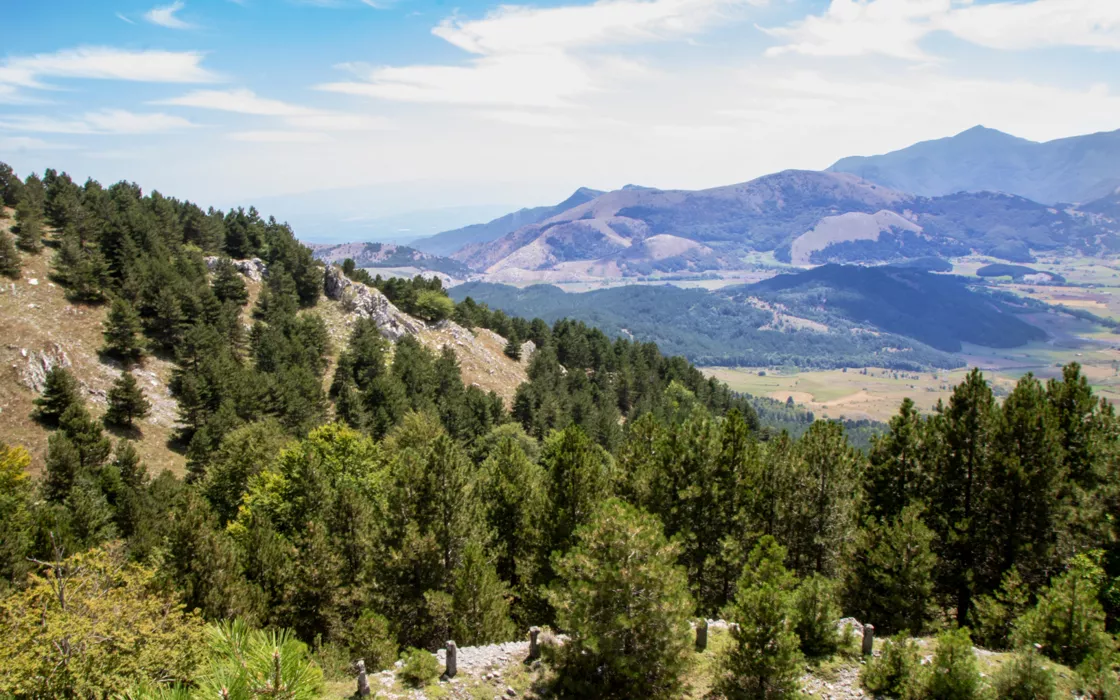
In the Pollino National Park, among history, mystical places and perched villages
Learn more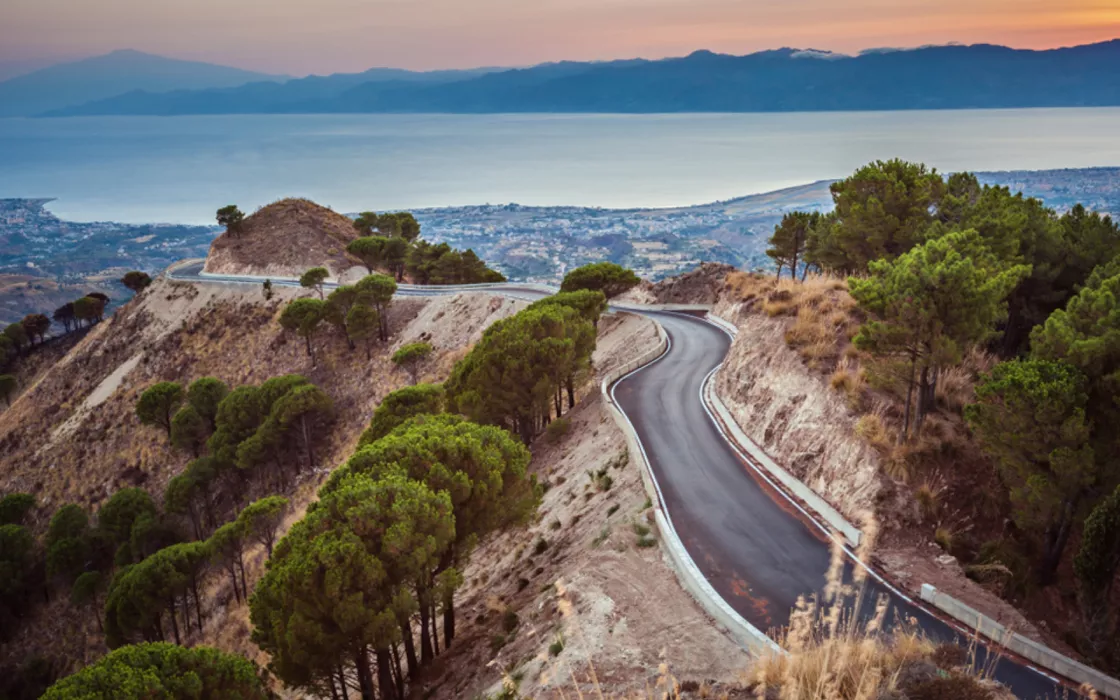

A cycle through Calabria, from Rocca Imperiale to Villa San Giovanni
Learn moreThe warm and enchanting land of the Riace Bronzes
A destination for a wonderful holiday of relaxation, good food, postcard-perfect sea, but also calm mountain landscapes, and close encounters with beauty and art, Calabria is a unique opportunity to experience an Italy with an astonishing wealth of history, culture and landscape: a gem to visit at any time of the year.
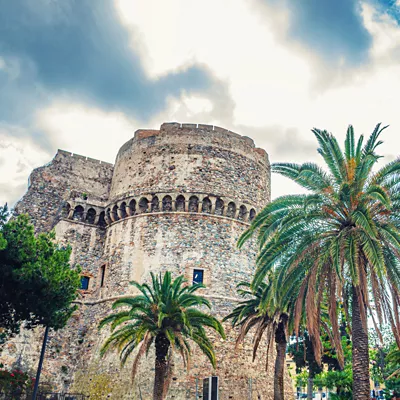

Continue living like an Italian
Subscribe to the Newsletter so as not to miss places, events and experiences for experiencing the best side of Italy: the authentic one.

Keep up to date
Would you like to learn about the most authentic experiences to be had in Italy, stay up to date on the most interesting events, discover our special offers and receive lots of insider hints and tips?


